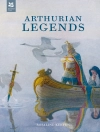In 'Parzival: A Knightly Epic, ’ Wolfram von Eschenbach delivers a masterful tale woven into the fabric of medieval romance and chivalric adventure. This two-volume epic narrates the journey of the titular hero, Parzival, as he navigates the complexities of nobility, spirituality, and the quest for the Holy Grail. Eschenbach’s narrative style is characterized by rich, allegorical imagery and rhythmic verse, blending lyrical beauty with deep philosophical inquiries, reflecting the societal ideals of knighthood and the pursuit of personal virtue during the High Middle Ages. The backdrop of courtly culture offers a fertile ground for themes of love, loss, and redemption, ensuring that Parzival is not merely a tale of adventure but also a profound moral exploration of human existence. Wolfram von Eschenbach, a prominent figure in medieval literature, was likely influenced by the sociopolitical dynamics of his time, as well as his interest in the Arthurian legends and Templar ideals. His nuanced understanding of human character is evident in his complex portrayals of both Parzival and the various characters he encounters. The interaction between knightly courage and personal growth that shapes Parzival’s journey reveals Eschenbach’s desire to explore the transformative power of adventure. Readers who seek a rich tapestry of medieval mythos, underscored by philosophical insight, will find 'Parzival: A Knightly Epic’ to be an essential read. It invites not only a journey through the chivalric world but also an introspective examination of moral integrity and spiritual enlightenment, making this epic a timeless piece of literature that resonates well beyond its historical context.
O autorze
Wolfram von Eschenbach (c. 1170 – c. 1220) was a German knight and poet, regarded as one of the greatest epic poets of medieval Germany. His literary work is a pinnacle of the Middle High German literature, and his style is characterized by its depth of psychological insight and its idiosyncratic creative use of language. Eschenbach is best known for his masterpiece, 'Parzival: A Knightly Epic’ (Vol. 1&2), an Arthurian romance which recounts the quest of the eponymous hero Parzival to attain the Holy Grail. This seminal work exerted a significant influence on the Grail romance tradition and is notable for its complexity of character, exploring themes of ethics, faith, and redemption in a richly textured narrative. Eschenbach’s writings showcase a remarkable blend of chivalric values and mystical Christian concepts, providing an invaluable window into the culture and ideals of the High Middle Ages. Although details about his life are scarce and mainly derived from his own literary works, it is believed that he was endowed with an erudite understanding of theology, chivalry, and courtly love, which informed his authoritative poetic voice. His contributions to the literary world continue to be celebrated for their enduring significance and artistic merit.












